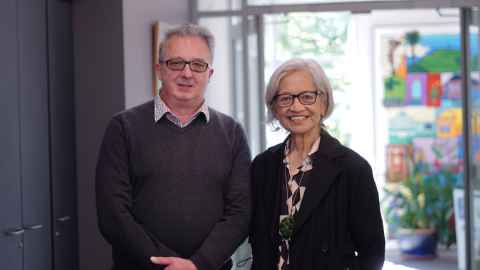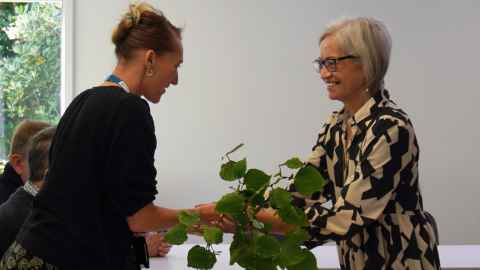Finding effective meth treatments for Māori
3 November 2023
A research project is getting under way that aims to find effective treatments for Māori meth users.

Research on meth addiction is getting under way that aims to recruit at least 50 percent Māori participants and to offer treatments in a culturally appropriate way.
Researchers from Waipapa Taumata Rau, University of Auckland will work in collaboration with iwi providers and community leaders with a goal of recruiting 320 participants.
“We are working with Māori to change their current over-representation in statistics for meth-related harm,” lead investigator Associate Professor David Newcombe says.
“There is no magic drug, no methadone or stop-smoking product, so we have had to come up with a novel design for our study,” says Dr Newcombe, who is head of the University’s Department of Social and Community Health.

"This cohort study involves following two different groups of methampetamine users for two years. One group consists of methamphetamine users who chose not to seek any treatment for their addiction. The second group consists of methamphetamine users who do seek help for their drug use."
Rates of methamphetamine use are not known for certain as it is an illegal behaviour; however, it is believed to be the second most commonly used illegal substance after cannabis.
Police wastewater testing shows methamphetamine is most commonly used in Northland and Auckland, and the study will take place in these regions.
There is Māori representation on the leadership team, including whaea Pamela Armstrong who works with a number of NGOs in the addiction sector in Northland and teaches postgraduate classes at Waipapa Taumata Rau, University of Auckland.
“The researchers are going to be making a point of talking to Māori providers who are familiar with each area and with alcohol and drug use in that community. Those providers can play a kaitiaki role guiding the researchers, as needed,” Armstrong says.
The researchers will undergo training in tikanga Māori and learn how to undertake the research in a culturally safe manner.
“I think that’s a good thing, because we have seen so much research done that doesn’t necessarily include that Māori perspective or equity,” Armstrong says.
“And of course, meth is huge in our communities. It’s hard to find a community that hasn’t been touched by meth and that includes our Māori communities,” she says.
“I think we'll get some really good learnings out of this, in terms of people who are significantly impacted by meth. We will want to have some insights that perhaps will help us in terms of the way that treatment or support is provided.”
Data will be gathered on indicators such as physical and mental health, psychosis, relapse back to meth use, and overall well-being.
The trial has been funded with $1.2 million from the Health Research Council.
All participants’ confidentiality will be respected and the trial has ethics approval.
Media contact
FMHS media adviser Jodi Yeats
M: 027 202 6372
E: jodi.yeats@auckland.ac.nz